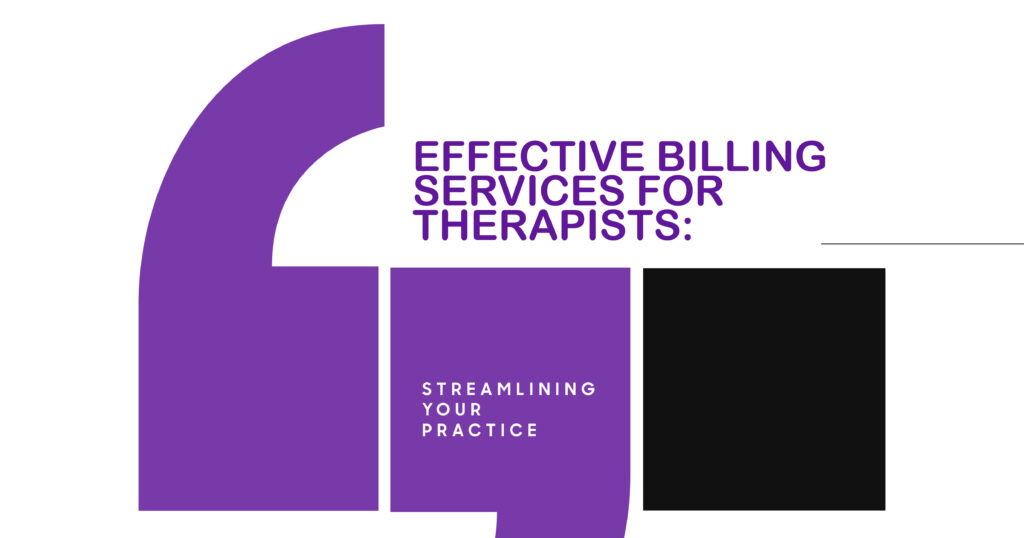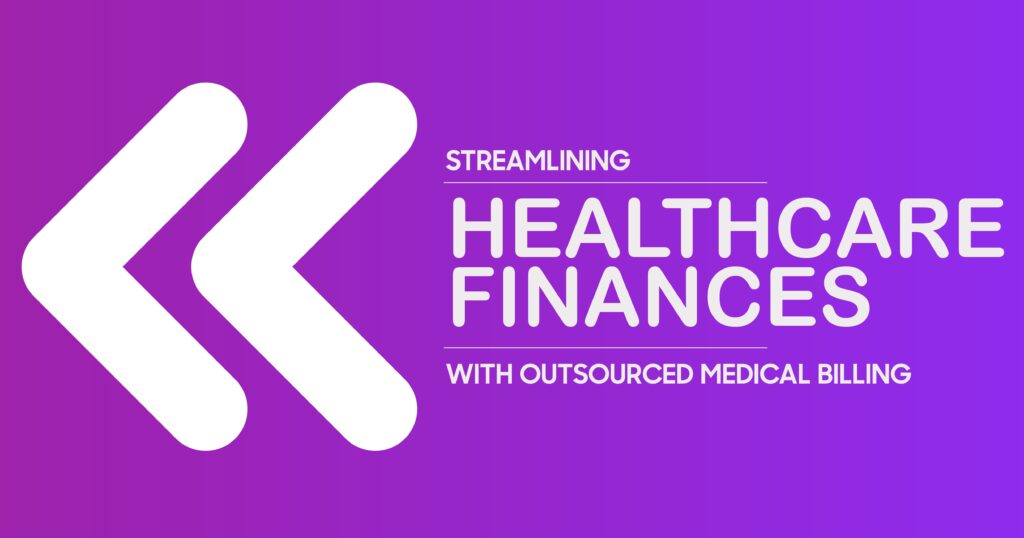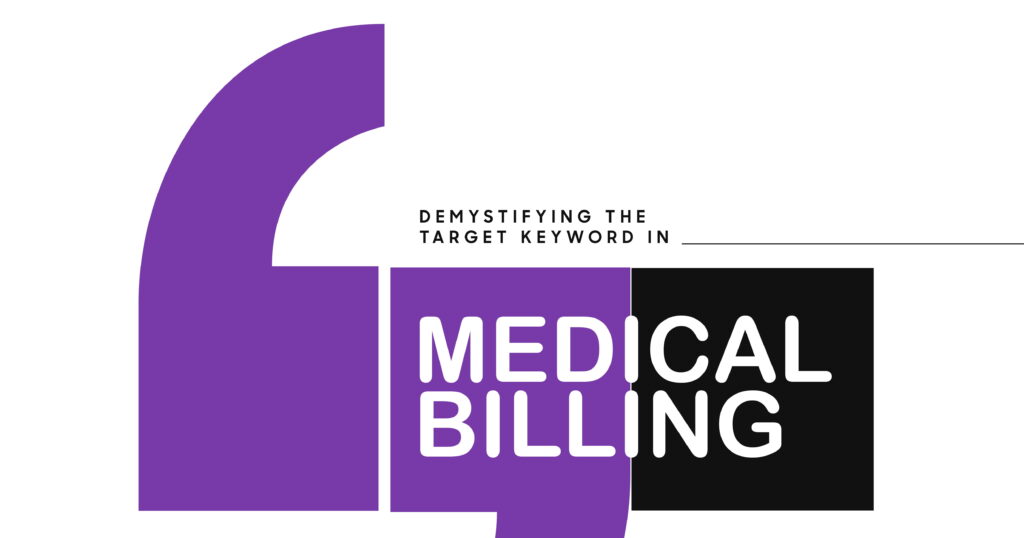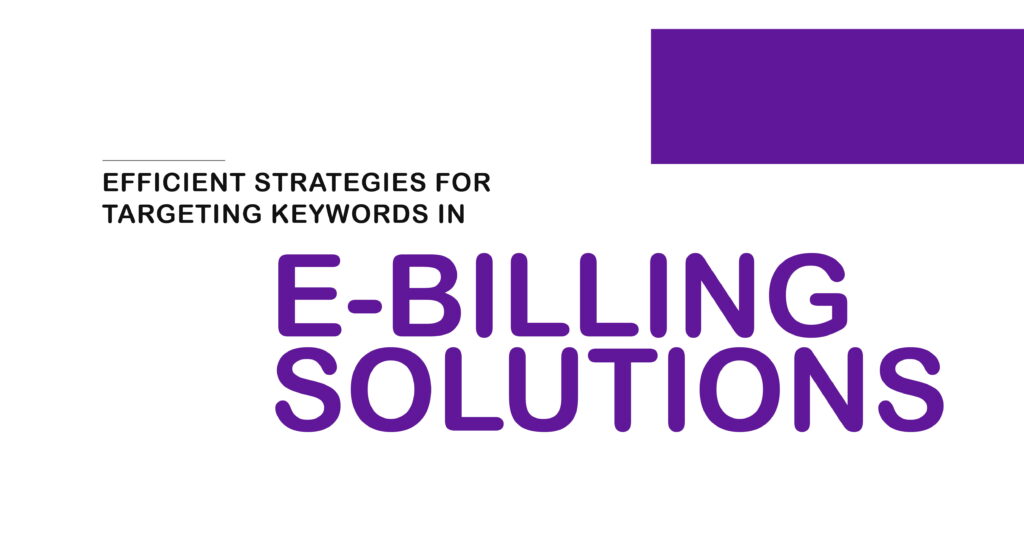In today’s fast-paced mental health industry, efficient billing isn’t just an administrative task – it’s the backbone of a thriving practice. From handling insurance claims to simplifying patient invoicing, effective billing services for therapists can make or break the financial stability of your clinic.
Whether you’re a solo practitioner or managing a group of therapists, understanding the importance of therapy billing solutions can help streamline operations and boost overall profitability.
The Role of Billing Services in Modern Therapy Practices
Billing in mental health care goes far beyond basic invoicing. Therapists often juggle client care with complicated billing codes, insurance claims, and compliance requirements.
This complexity is where professional mental health billing services become invaluable. Billing services help manage routine tasks such as claims submission, payment tracking, and revenue reporting, enabling therapists to focus solely on client care.
More importantly, billing solutions for mental health professionals mitigate costly errors, such as incorrect coding or missed filing deadlines. These services ensure accurate claim submissions, prevent rejections, and improve reimbursement rates, which are essential for maintaining a healthy cash flow. Additionally, billing services enhance compliance with ever-evolving healthcare regulations.
By keeping billing practices aligned with HIPAA guidelines and payer policies, therapists reduce the risk of audits and penalties. Partnering with an experienced billing provider can also help practices stay updated on policy changes that affect reimbursement structures.
For detailed guidelines on HIPAA compliance for small practices, consult the official U.S. Department of Health & Human Services resource.
Choosing the Right Therapy Billing Solutions
Selecting suitable therapy billing solutions isn’t simply about choosing software – it’s about finding systems that integrate seamlessly into your daily operations. The best solutions support electronic claims submission, track payments automatically, and offer real-time reporting. Many platforms also integrate appointment scheduling, telehealth functionalities, and secure messaging to enhance practice management.

When evaluating options, consider whether the platform can handle the specific requirements of behavioral health billing services, such as handling different payer requirements, authorization tracking, and reporting tailored to therapy services.
Look for a vendor that offers dedicated customer support, regular updates, and user training. This ensures your team can fully leverage the system’s capabilities, improving workflow efficiency and billing accuracy.
Insurance Billing for Therapists: What You Need to Know
Working with insurance providers can be one of the most challenging aspects of therapy practice management. Insurance billing for therapists involves navigating complicated coding standards, submitting claims within payer deadlines, and tracking reimbursements diligently. Failure in any of these areas can lead to delayed or denied payments.
Therapists must understand how insurance companies process behavioral health claims differently from other medical services. Familiarity with common billing codes, such as CPT and ICD-10, is crucial for accurate claim submission. Equally important is knowing the nuances of payer-specific policies, which may affect coverage for therapy sessions, treatment plans, or telehealth services.
It’s essential to track authorizations and ensure session limits aren’t exceeded, as doing so can prevent claim denials and disputes with insurers. Therapists must also monitor Explanation of Benefits (EOBs) regularly to detect and correct underpayments or missed reimbursements quickly.
Therapists can review the resources provided by the American Psychological Association for deeper insights into managing insurance billing.
The Impact on Reimbursement and Revenue Cycle
Efficient insurance billing for therapists directly affects a practice’s revenue cycle. Each claim submission, denial, and resubmission adds to the administrative workload and delays payments. Billing errors or compliance issues can stretch out the revenue cycle unnecessarily, causing cash flow disruptions.
Effective billing solutions help shorten the revenue cycle by minimizing errors and streamlining submissions. Proper management of this cycle ensures timely reimbursements, allowing practices to invest in growth initiatives like expanding services or hiring additional clinicians.
Key Features to Look for in Therapist Billing Software
The market for therapist billing software is broad, but not all solutions offer the essential features needed for mental health practices. Below are key features to prioritize:
- Claims Automation. Automatic claim creation and submission to speed up the billing process.
- Compliance Management. Built-in tools to support HIPAA compliance and minimize data breaches.
- Real-Time Reporting. Access to payment trends and financial reports to monitor practice health.
- Payment Processing. Easy patient billing and payment capture directly from the platform.
- Authorization Tracking. Ensure sessions and services stay within coverage limits.
- Customer Support. Responsive support teams to troubleshoot issues when they arise.
One feature that’s often overlooked is system scalability. Growing practices require software that can accommodate increased patient loads and multi-location operations without compromising performance.

Benefits of Outsourcing Billing Services for Counselors
Outsourcing billing services for counselors can significantly enhance administrative efficiency while improving financial outcomes. By handing over billing responsibilities to specialists, counselors can focus on delivering quality care without worrying about claim submissions or insurance disputes.
Key benefits of outsourcing include reduced operational costs, improved billing accuracy, and faster claim processing. Billing experts stay updated on changing payer requirements and industry regulations, minimizing errors and maximizing reimbursements. Additionally, outsourced providers often offer advanced analytics and reporting, providing therapists with actionable insights into financial performance.
Moreover, outsourcing provides a predictable operational expense. Instead of hiring and training billing staff, therapists pay a service fee, which is often more cost-effective in the long term.
Improve Practice Efficiency With Indigo Billing
For mental health professionals looking to streamline their practice operations, Indigo Billing offers comprehensive billing services for therapists designed to simplify revenue management and improve practice performance. From claim submission to payment reconciliation, Indigo Billing handles every aspect of your billing process with accuracy and transparency.
Their tailored therapy billing solutions cater specifically to mental health professionals, ensuring compliance with payer guidelines and maximizing reimbursements. Indigo’s services are backed by industry expertise, helping your practice avoid common pitfalls like claim denials and underpayments.
By partnering with Indigo Billing, therapists can reduce administrative burdens, enhance cash flow, and focus fully on patient care. Whether you’re a solo practitioner or managing a multi-provider group, Indigo’s scalable solutions can be customized to your specific needs. Contact Indigo Billing for personalized billing support tailored to your mental health practice.
FAQs
What are the benefits of using therapy billing solutions for streamlining a mental health practice?
Therapy billing solutions automate claim submissions, reduce errors, and improve revenue tracking, allowing therapists to focus on patient care rather than administrative tasks.
How can insurance billing for therapists impact the revenue cycle of a therapy practice?
Efficient insurance billing shortens the revenue cycle by reducing claim errors and ensuring timely reimbursements, improving the financial health of the practice.
What key features should therapists look for in billing software to enhance efficiency and compliance?
Therapists should prioritize automated claims processing, compliance tools, real-time reporting, and responsive support when selecting billing software.
How do billing services for counselors help in navigating complex insurance claims and reimbursements?
These services manage claim submissions, track payments, and handle denials or disputes, ensuring therapists receive timely reimbursements without administrative hassle.
What strategies can be employed in psychotherapy billing to ensure accuracy and reduce claim denials?
Using accurate coding, tracking authorizations, and verifying insurance details before sessions can significantly reduce billing errors and claim denials.












